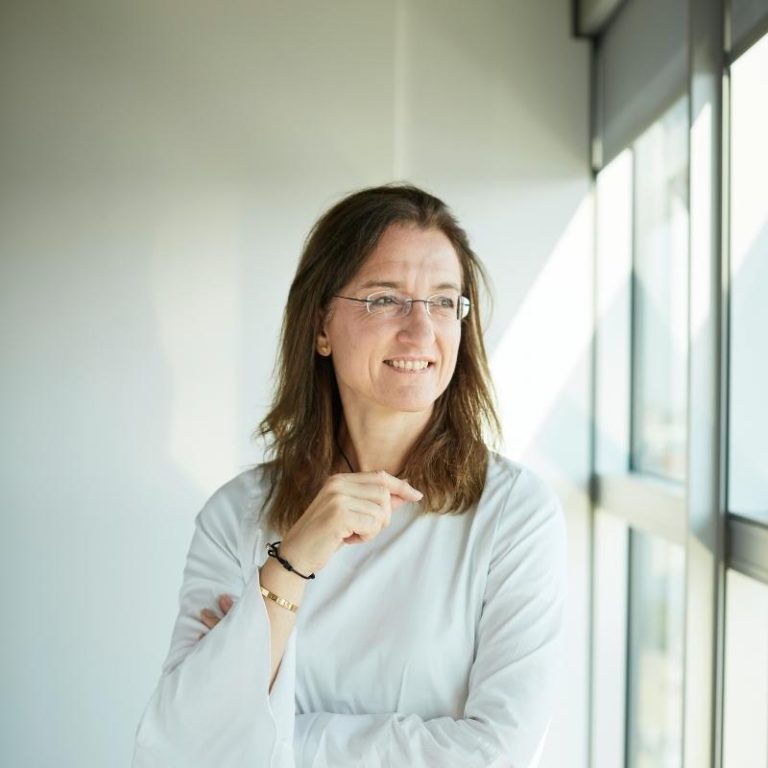Deutsche Bahn: Becoming the world’s most candidate-centric employer
Kerstin Wagner, EVP of talent acquisition, shares insights ahead of her appearance at UNLEASH World.
Why You Should Care
German rail giant Deutsche Bahn wants to be the world's most candidate-centric employer.
Want to find out how?
Check out this interview with Deutsche Bahn's EVP of talent acquisition Kerstin Wagner ahead of her appearance at UNLEASH World.
When COVID-19 hit in early 2020, despite the slowdown of travel (both international and domestic), German rail giant Deutsche Bahn made the decision to “stick in the market” and continue to hire.
Ahead of her appearance at UNLEASH World in mid-October, Deutsche Bahn’s executive vice-president of talent acquisition Kerstin Wagner shares that the company knew that the situation was “insecure, but we are a reliable partner to our candidates in the market, therefore we needed to stay in the market”.
In fact, Wagner sees 2020 as “one of the most innovative years we’ve ever had” (and she’s been working at Deutsche Bahn for a decade). The company successfully managed to hire 25,000 people in 2020, an all-time record; in 2021 around 22,000 people were brought onboard, and, she says, “we will definitely hire around 24,000 people this year”.
The first thing Deutsche Bahn did when COVID-19 was declared as a pandemic was try “to not lose all the candidates we had in the pipeline”. This was much easier said than done; “all of a sudden, face to face was gone. We really had to redefine ourselves. Within ten days, we moved talent acquisition into the virtual world – and it worked”, shares Wagner.
Living and breathing candidate centricity
During those ten days when Deutsche Bahn was figuring out its switch to virtual recruiting, the main priority for the company were the candidates. Wagner and her team focused on the needs of the candidates and how to support them during this transition to online hiring.
The answer was training candidates how to use the virtual tools – it is important to remember that back in 2020 doing job interviews on Microsoft Teams was completely new for most people.
Therefore, the talent acquisition team took it upon themselves to make sure candidates were comfortable in this environment. Wagner explains: “We created guidelines, we trained them a little bit. We organized virtual events.”
Ultimately, this approach feeds into Deutsche Bahn’s broader talent acquisition mission: to become the world’s most candidate centric employer.

Kerstin Wagner, executive vice-president of talent acquisition, Deutsche Bahn.
For Wagner and her 800-person strong talent acquisition team, the candidate is their customer. They put themselves in the customer’s shoes and make every single decision based around the candidate’s needs.
“Whenever you have a discussion on process, on method or on digitalization in talent acquisition, we make sure to put the candidate experience top of the list”, explains Wagner. Before making a decision, the team always asks the question: “does it help strengthen your candidate experience?” If the answer is no, then they rethink the idea.
For instance, Wagner shares, “we use chat bots. Many other companies are doing that too, but we’re not doing it because they are so sexy or because everybody else is doing something with them. [Instead, we are using them] because it helps me to strengthen and improve my candidate experience”.
Taking a holistic approach to hiring
Deutsche Bahn’s candidate-centric approach is helped by the fact that “we have everything in talent acquisition under one roof” – this means having “a holistic approach to talent acquisition, which is essential in a tight market”.
This means that the talent acquisition team oversees the entire recruiting process; “for candidates, we are their partner during the whole process. The candidate sees the recruiter in the first, second [etc] interviews, and they will be their contact [until] the time the overall decision is made”.
The recruiter works directly with the hiring manager on the type of candidate they are looking for. She explains it is unique in big organizations to have the “governance plus the operational piece in my [talent acquisition] team – normally you have governance sitting in corporate, then the operational team sitting in for example in HR services”.
Wagner continues: “I have employer branding [and] HR marketing in my team as well as a specialized analytics team, a TA tech team [and] a social media team.
“My team is responsible for permanent hires as well as temp hires and I have a special cross-border recruiting team that goes abroad to look for talent in new markets.”
This organizational approach shows the strategic importance Deutsche Bahn places on talent acquisition; according to Wagner, “being candidate centric is in our DNA” as business. This is further proved by the fact that Wagner reports straight into the managing board.
Listening to your people and their ideas
Another unique element of talent acquisition at Deutsche Bahn is being forward thinking. “We know candidates and job profiles are not going to be the same in five years”; the talent acquisition team is ahead of the game and can spot the trends happening in the labor market earlier than other elements of the business.
This is why whenever Wagner is doing a roadmap for the coming year, she always speaks to all 800 members of her team to get their views; “I’m always telling people, ask your own people. They will have brilliant ideas”.
The idea is to leverage the whole team’s diverse expertise. For instance, those recruiting school leavers will have different insights into the future of recruiting than those hiring engineers or IT people. All of these perspectives are essential when coming up with hiring roadmaps for the future.
Wagner and her team also try to be “very innovative”, as well as tech and data-driven, in order to stay “ahead of the market and [to be] always better than the competition” around what the candidate needs.
Ultimately, Deutsche Bahn’s talent acquisition team is based on collaboration and democracy. “In my leadership style, hierarchy is not really important. The power of the idea is really decisive, and it doesn’t matter who had the idea”, Wagner notes.
In fact, the sharing of ideas and experimentation approach Deutsche Bahn has around talent acquisition “gives people freedom to come up with great ideas”.
Thriving in the ‘Great Resignation’
On the topic of talent acquisition’s unique position as the “only department in the labor market”, Wagner shares that this means her team can advise the business on what is happening on the labor market, and what changes to make to remain competitive.
This is essential all the time, but particularly in the ‘Great Resignation’ and the tight labor market that global companies are facing.
Wagner notes: “Talent acquisition’s role is like sales. My product is a job, so I’m selling jobs. If the product is not attractive anymore, then I have to change my product because I can’t change my customer” – the candidate. “I have to go back to whomever [has] the responsibility to improve that product” and help them make the right call on what to change.
An example of an emerging trend that Wagner’s team has noticed is that candidates increasingly want to work for organizations that care about being sustainable and eco-friendly. This is positive for Deutsche Bahn, which has a sustainable purpose; “We’re one of the key players in stopping climate change; bringing traffic from the streets to the trains helps to reduce CO2 emissions”.
People who work at Deutsche Bahn, therefore, can “move the needle” and “be part of the social transformation in society”.
They also work in a diverse and inclusive working environment; Deutsche Bahn employees 338,000 people globally across 500 job roles, so “we reflect society” and make sure to not discriminate based on metrics like age when recruiting – “in 2021, we hired more than 2,300 people who are over 50”.
In addition, flexibility is becoming key to candidates, and therefore is a priority for Deutsche Bahn. The employer has for a large number of jobs a ‘Wherever you want’ policy for working location; this means that many employees can work from anywhere in Germany; “you don’t have to move in order to do these jobs”.
Deutsche Bahn is trying to figure out how to offer flexibility to its frontline workers who need to work in certain site locations. The employer offers the possibility to allow them to request shifts in order to make work fit around their lives, not the other way round.
Ultimately for Wagner, businesses that will thrive in the ‘Great Resignation’ are those that “don’t deny what’s going on in the market”. Things are changing at record pace, so it is crucial to be forward looking, and utilize technology to stay ahead of the curve.
Wagner is really excited to attend and speak at UNLEASH World as it will give her even more insight into the broader market.
“UNLEASH [World] is the event for HR. It is always a super source for me to learn, to exchange, but also to see the trends and to meet the HR community”; “What’s coming tech-wise? Are there any [new] crazy ideas?”, she concludes.
Sign up to the UNLEASH Newsletter
Get the Editor’s picks of the week delivered straight to your inbox!

Chief Reporter
Allie is an award-winning business journalist and can be reached at alexandra@unleash.ai.
